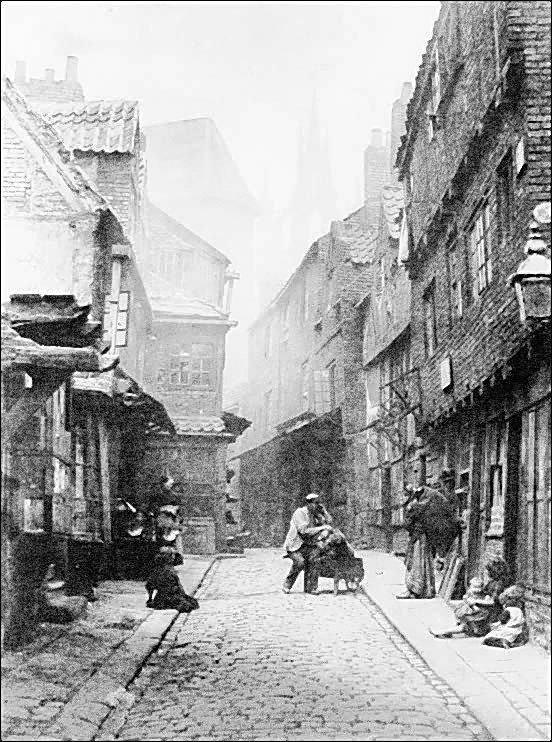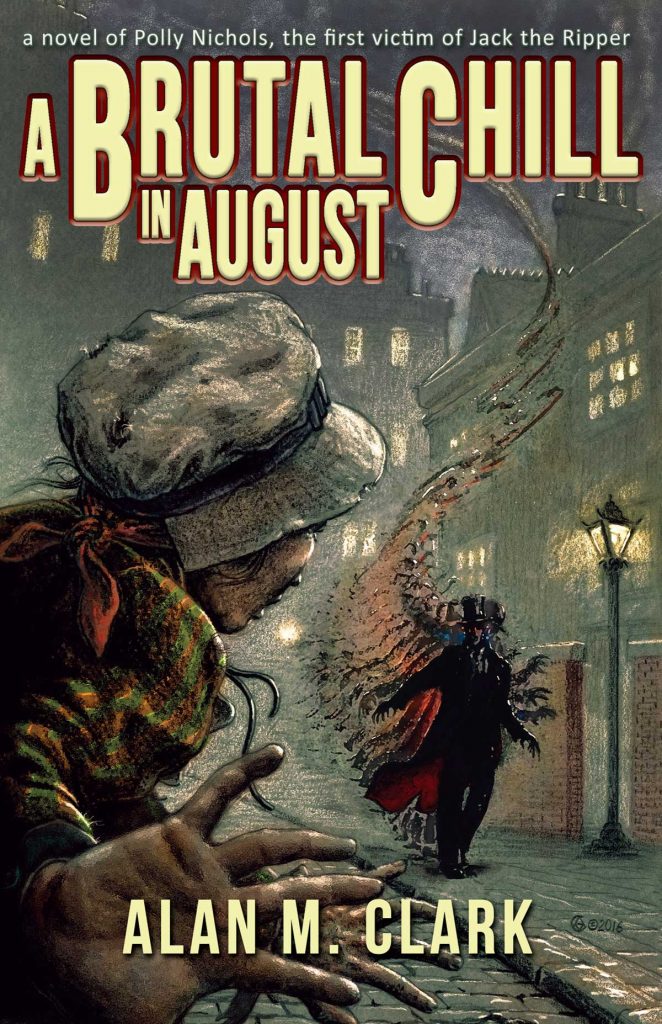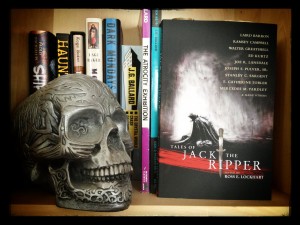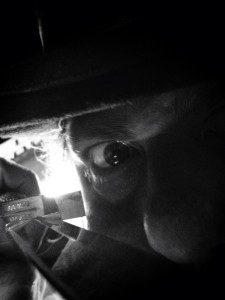THE PEOPLE OF THE ABYSS Liveblog Part 7
Jack London tried to shelter in the casual ward of the Whitechapel workhouse in chapter 7. While waiting in line, he learned about how a homeless veteran of the British Navy, one who earned the Victoria Cross, had fared over the years. The man, 87 years of age, said that he wished he’d drowned and died while in the navy years earlier because his life wasn’t worth living. “Don’t you ever let yourself grow old, lad,” he said to the author. The fellow had made the terrible mistake of striking a superior officer, and had served time in prison for that. Before that, he’d seen action in military engagements in several wars, and been an exemplary member of the navy, having won not only the metal, but three good conduct stripes.
He seems a long-ago reflection of what we see among homeless veterans today. We know so much more now about the damage to the psyche that seeing combat brings, and yet that knowledge seems to do little good for our veterans.
With the fellow’s age at 87, we can see that if one lived to become an adult, one had a chance to grow old, just as we do today. Again, it is the infant mortality rate that drove the expected lifespan down for those of London. Even so, 87 seems an unusually advanced age for one of his time and circumstances. Of course, the old veteran spent much of his life on the sea in the open air, not in poisonous London. Perhaps that helps account for the difference.
The casual ward of the Whitechapel workhouse as described by Jack London, sounds like an indoor facility, which is different from at least some of those of the time of Jack the Ripper. Catherine Eddowes, JTR’s 4th victim, spent the two nights prior to her death in the Mile End Casual Ward. The casual ward was a segment of the facility for those who needed a place to sleep but either didn’t want to enter the workhouse proper or were unwelcome, such as those who arrived clearly ill or criminals known to the workhouse staff. The inmates were given a stall with straw as bedding. Jack London describes sleeping in a hammock.
On the night of her death at the hands of Jack the Ripper, Catherine Eddowes’s body was found at the crime scene to have, including clothing, over fifty personal items, many of them in pockets hidden among her skirts. She was wearing several layers of clothing. She probably had so many items with her because she was homeless, and while staying in the casual ward, she would have slept with all her possessions to prevent theft. She may have been carrying everything she owned on her.
Here’s the list of items found with Catherine Eddowes’s body (the list begins with her clothing):
-Black straw bonnet trimmed in green and black velvet with black beads. Black strings, worn tied to the head.
-Black cloth jacket trimmed around the collar and cuffs with imitation fur and around the pockets in black silk braid and fur. Large metal buttons.
-Dark green chintz skirt, 3 flounces, brown button on waistband. The skirt is patterned with Michaelmas daisies and golden lilies.
-Man’s white vest, matching buttons down front.
-Brown linsey bodice, black velvet collar with brown buttons down front
-Grey stuff petticoat with white waistband
-Very old green alpaca skirt (worn as undergarment)
-Very old ragged blue skirt with red flounces, light twill lining (worn as undergarment)
-White calico chemise
-No drawers or stays
-Pair of men’s lace up boots, mohair laces. Right boot repaired with red thread
-1 piece of red gauze silk worn as a neckerchief
-1 large white pocket handkerchief
-1 large white cotton handkerchief with red and white bird’s eye border
-2 unbleached calico pockets, tape strings
-1 blue stripe bed ticking pocket
-Brown ribbed knee stockings, darned at the feet with white cotton
-2 small blue bags made of bed ticking
-2 short black clay pipes
-1 tin box containing tea
-1 tin box containing sugar
-1 tin matchbox, empty
-12 pieces white rag, some slightly bloodstained
-1 piece coarse linen, white
-1 piece of blue and white shirting, 3 cornered
-1 piece red flannel with pins and needles
-6 pieces soap
-1 small tooth comb
-1 white handle table knife
-1 metal teaspoon
-1 red leather cigarette case with white metal fittings
-1 ball hemp
-1 piece of old white apron with repair
-Several buttons and a thimble
-Mustard tin containing two pawn tickets, One in the name of Emily Birrell, 52 White’s Row, dated August 31, 9d for a man’s flannel shirt. The other is in the name of Jane Kelly of 6 Dorset Street and dated September 28, 2S for a pair of men’s boots. Both addresses are false.
-Printed handbill and according to a press report- a printed card for ‘Frank Carter,305,Bethnal Green Road
-Portion of a pair of spectacles
-1 red mitten
Finding and reading this list is what humanized Catherine Eddowes for me, and inspired the first novel within my Jack the Ripper Victims series, Of Thimble and Threat.

Study for the cover of Am Seidennen Faden: Ein Opfer von Jack the Ripper, which is the German language edition of Jack the Ripper Victims Series: Of Thimble and Threat. “Study for “Of Thimble and Threat” copyright©2012 Alan M. Clark. Colored pencil on brown paper.
Her possessions are rather rudimentary by modern standards. She was missing the shopping cart and the plastic garbage bags, but otherwise, she seems familiar. Instead of the plastic bags, she had the pockets under her skirts. Considering the bag lady and the homeless veteran, then and now, clearly the more things change the more they stay the same.
—Alan M. Clark
Eugene, Oregon
Get a free ebook copy of The People of the Abyss from Project Gutenburg—available in various formats including Kindle and Epub, : http://www.gutenberg.org/ebooks/1688
Preorder A Brutal Chill in August 
Visit Alan M. Clark online: www.alanmclark.com
About Alan M Clark 
Author and illustrator Alan M. Clark grew up in Tennessee in a house full of bones and old medical books. His awards include the World Fantasy Award and four Chesley Awards. He is the author of seventeen books, including ten novels, a lavishly illustrated novella, four collections of fiction, and a nonfiction full-color book of his artwork. Mr. Clark’s company, IFD Publishing, has released 44 titles of various editions, including traditional books, both paperback and hardcover, audio books, and ebooks by such authors as F. Paul Wilson, Elizabeth Engstrom, and Jeremy Robert Johnson. Alan M. Clark and his wife, Melody, live in Oregon. www.alanmclark.com



















